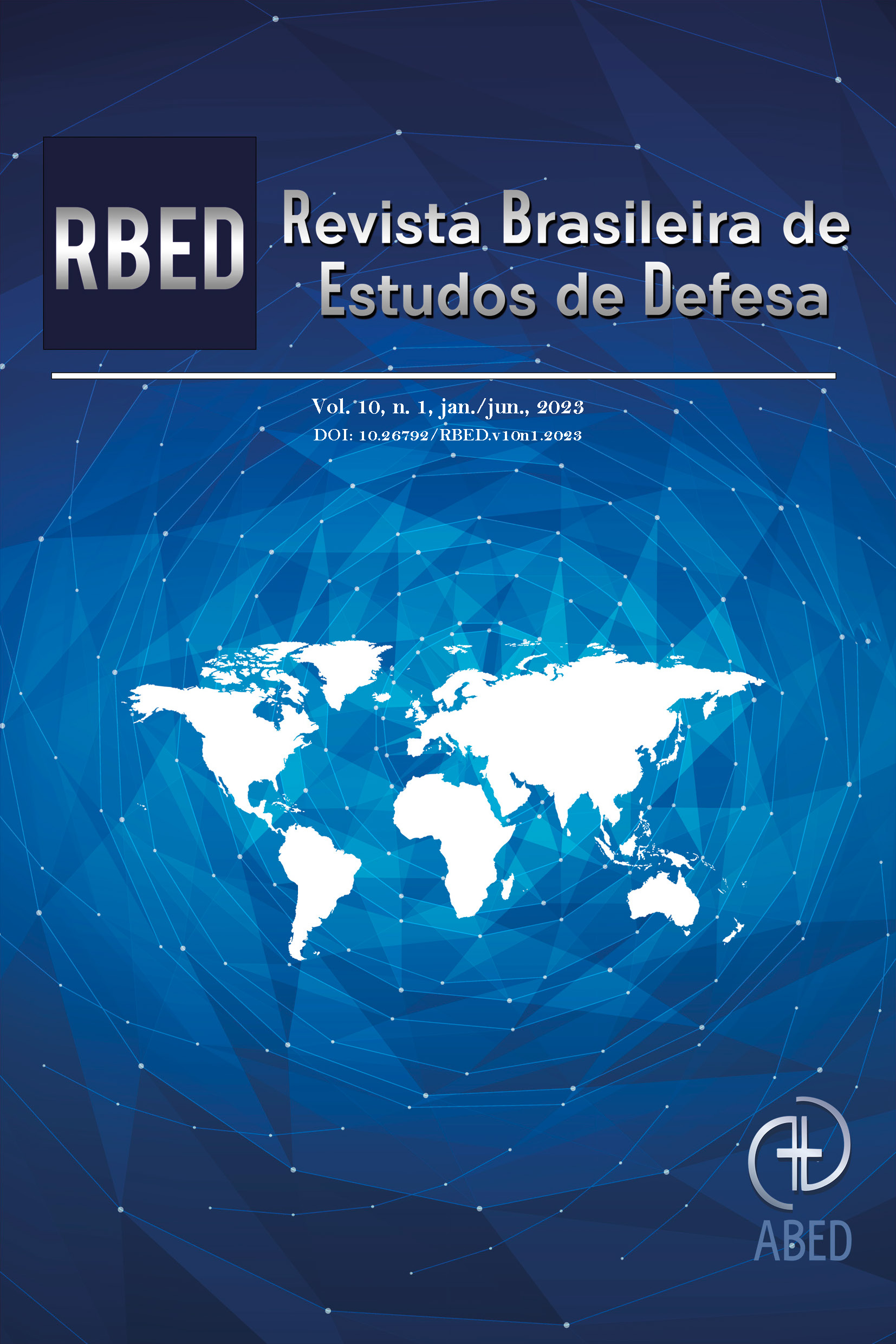The influence of logistical capacity on deterrent power
DOI:
https://doi.org/10.26792/rbed.v10i1.75307Abstract
Considered as one of the Brazilian National Defense’ Capabilities, deterrence depends on
the armed forces’ logistical capabilities, which are in charge of obtaining, distributing and
managing combat means. This offensive potential is responsible for creating deterrence’s
dismaying and restrictive effect. In this sense, the central question is to define how military
logistics is able to create dissuasive conditions. This article aims to present an analysis of
the effects of military logistics in the three basic conditions for successful deterrence: i)
level of opponent motivation; ii) clarity about the object of deterrence; and iii) the actions
the defender will take, and the defender’s capability and will to fulfill threats. In this context, a review of the literature directly related to the theme is presented, dealing with the
Theory of Deterrence and the Theory of Logistics as theoretical references. Following,
the structural and procedural aspects of military logistics are compared to these conditions
in terms of the direct and indirect influence in creating deterrence. This analysis considers the consequence suitable for military employment in force projection and sustainment
phases. The main conclusions are the effects of logistical resources on military readiness
to pursue credibility for deterrence. The main implication of this research is its potential
to guide the priorities of investments in logistics linked to creating a reliable deterrence.
Downloads
Downloads
Published
How to Cite
Issue
Section
License
Copyright (c) 2024 Rodrigo Silva Campos de Moura, Fábio Ayres Cardoso

This work is licensed under a Creative Commons Attribution 4.0 International License.
Autores que publicam nesta revista concordam com os seguintes termos:1) Autores mantêm os direitos autorais e concedem à revista o direito de primeira publicação, com o trabalho simultaneamente licenciado sob a Licença Creative Commons Attribution que permite o compartilhamento do trabalho com reconhecimento da autoria e publicação inicial nesta revista.
2) Autores têm autorização para assumir contratos adicionais separadamente, para distribuição não-exclusiva da versão do trabalho publicada nesta revista (ex.: publicar em repositório institucional ou como capítulo de livro), com reconhecimento de autoria e publicação inicial nesta revista.
3) Autores têm permissão e são estimulados a publicar e distribuir seu trabalho online (ex.: em repositórios institucionais ou na sua página pessoal) a qualquer ponto antes ou durante o processo editorial, já que isso pode gerar alterações produtivas, bem como aumentar o impacto e a citação do trabalho publicado (Veja O Efeito do Acesso Livre).





